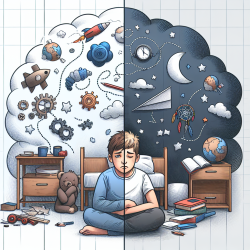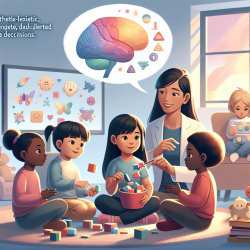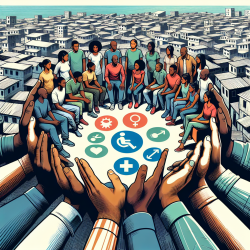Leveraging Research on Adverse Childhood Experiences to Improve Sleep Health in College Students
Adverse childhood experiences (ACEs) are traumatic events occurring before the age of 18, including maltreatment and household dysfunction. These experiences have long-term effects on various aspects of health, including sleep. A recent study titled Adverse childhood experiences and sleep difficulties among young adult college students provides valuable insights into the relationship between ACEs and sleep health in college students. This blog aims to help practitioners improve their skills by implementing the outcomes of this research or encouraging further investigation.
Key Findings from the Research
The study examined data from the 2018/2019 American College Health Association-National College Health Assessment II (ACHA-NCHA-II) survey, which included responses from 3,606 students in California and 407 students in Texas. Key findings from the research include:
- Approximately 40% of the sample reported experiencing ACEs.
- Students who reported only household dysfunction or only maltreatment had higher odds of experiencing sleep difficulties in the past year, with adjusted odds ratios (AOR) ranging from 1.52 to 2.40.
- Students who reported maltreatment only had 2.47 times the odds of receiving an insomnia diagnosis.
- Students who reported both maltreatment and household dysfunction had higher odds of experiencing past-year sleep difficulty, insomnia diagnosis, and "other" sleep disorder diagnosis, with AORs ranging from 2.53 to 3.10.
Implications for Practitioners
Understanding the connection between ACEs and sleep health can significantly enhance the quality of care provided to college students. Here are some actionable steps for practitioners:
1. Screen for ACEs
Incorporate screening for ACEs as part of the intake process. Identifying students with a history of ACEs can help tailor interventions to their specific needs.
2. Implement Sleep Health Programs
Develop and promote sleep health programs on college campuses. These programs should focus on healthy sleep behaviors, stress management, and mental health support to mitigate the negative effects of ACEs on sleep.
3. Provide Targeted Interventions
Offer targeted interventions for students identified as having ACEs. Cognitive-behavioral therapy for insomnia (CBT-I) and other evidence-based therapies can be particularly effective in improving sleep health among this population.
4. Foster a Supportive Environment
Create a supportive campus environment that promotes mental health and well-being. Encourage peer support groups, counseling services, and workshops focused on resilience and coping strategies.
Encouraging Further Research
While the study provides valuable insights, further research is needed to explore the long-term effects of ACEs on sleep health and the efficacy of various interventions. Practitioners are encouraged to collaborate with researchers to conduct longitudinal studies and develop innovative approaches to address sleep difficulties in college students with a history of ACEs.
To read the original research paper, please follow this link: Adverse childhood experiences and sleep difficulties among young adult college students.










